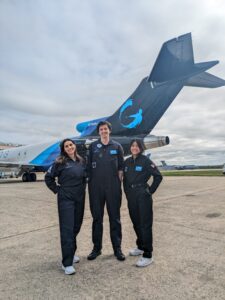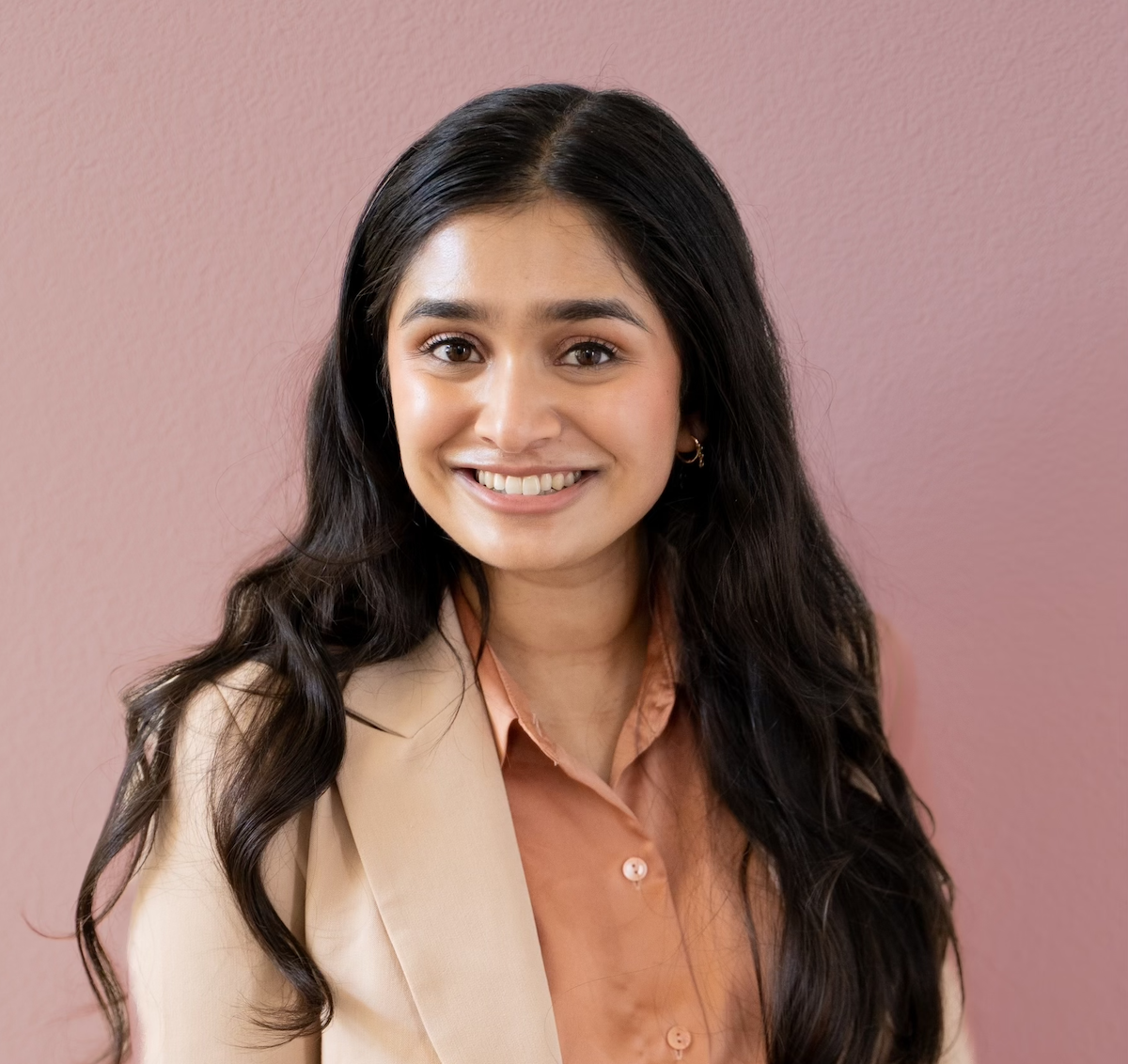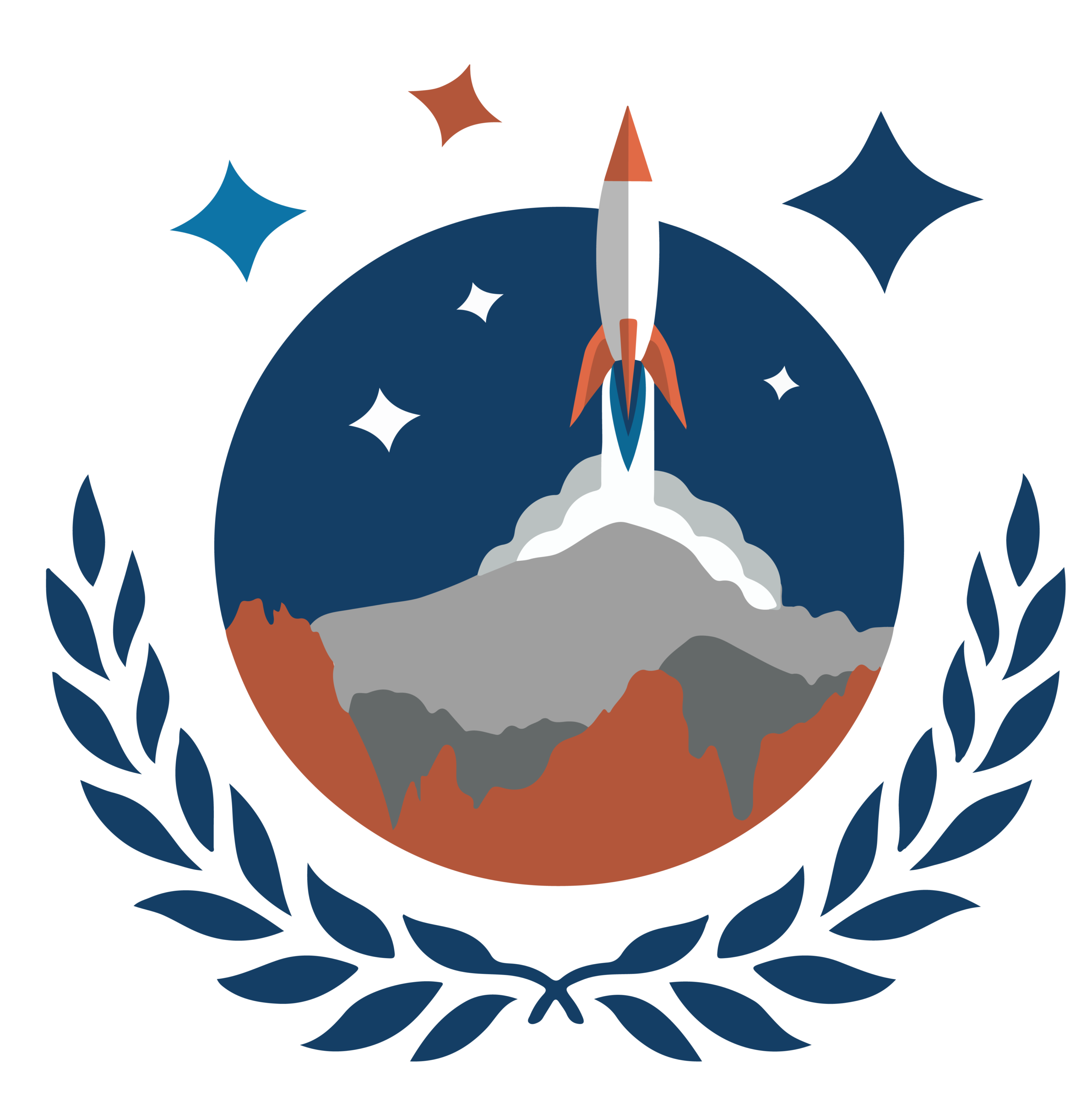Pioneering Science in Microgravity!
By: Florence Pauline Basubas, Matej Poliacek, Nikol Koleva
Pioneering Science in Microgravity!
In May 2024, remarkable members of the Space Generation Advisory Council (SGAC), Florence Pauline Basubas, Matej Poliaček and Nikol Koleva embarked on a transformative journey aboard the G-Force One as part of the Aurelia Institute’s Horizon Program. Representing emerging space nations and a shared vision for inclusivity and innovation in space exploration, their contributions to microgravity research showcased the potential of diverse perspectives and resourceful experimentation.
🇵🇭Florence Pauline Basubas’s Low-Cost Space Biology Experiments
Florence developed a low-cost, versatile payload for space biology research. Her experiments examined human skin microbiome bacteria in microgravity, alongside fluid dynamics tests using water and dye. These experiments not only demonstrated innovative designs for conducting research in weightlessness, but also aimed to make microgravity experiments easier to design and develop for emerging space nations. Coming from the Philippines, Florence’s dedication highlights the importance of empowering underrepresented communities to engage with space research, addressing global challenges like climate change, health, and sustainability through novel space-based solutions.
Matej Poliaček’s RESPIRE-I Experiment
Matej’s project, RESPIRE-I (Repeatable Experiment for Simulation of Particles from Inhaler in REduced Gravity), addresses a critical challenge in human spaceflight: how aerosols, such as those delivered by asthma inhalers, behave in microgravity. Using a 3D mechanical lung model, equipped with a hand-operated air pump and an aerosol delivery system, the experiment simulated breathing patterns to observe particle circulation and deposition in lung-like structures. By focusing on the effectiveness of asthma medication in space, Matej’s work seeks to broaden astronaut eligibility criteria, making space exploration more inclusive. Beyond its space applications, the insights gained from RESPIRE-I could enhance medical treatments on Earth, particularly for those suffering from respiratory conditions.
Nikol Koleva’s research
Nikol Koleva’s research delved into how grounding techniques could regulate stress and anxiety in microgravity. Rooted in Resource Conservation Theory and evolutionary psychology, the experiment explored how the brain prioritizes survival tasks over emotional regulation in extreme environments like space.
During a parabolic flight, Nikol alternated between applying grounding techniques and simply experiencing the physiological chaos of weightlessness. Using a Hexoskin vest, she tracked biometric data, including heart rate and respiration, throughout the experiment. This work ties into Nikol’s research in space psychology, including her initial study with astronauts on the Overview Effect—an awe-inspiring shift in perspective experienced during spaceflight—and her subsequent efforts to replicate it using VR, bringing its stress-reducing benefits to the general public.
A Collaborative Vision for the Future
Both Florence and Matej were part of the Horizon 2023 cohort while Nikol was a part of Horizon 2024, going through online training with Aurelia before the flight. Their participation reflects a growing movement to democratize access to space research, equipping emerging leaders with the tools and resources to push the boundaries of what is possible.
Aurelia’s Horizon Program builds on its inaugural cohort’s success, offering participants the opportunity to design, build, and test experiments in microgravity. This approach not only fosters technical expertise but also nurtures a collaborative, interdisciplinary ethos essential for addressing the complex challenges of space exploration.
Impact on Earth and Beyond
The work of Florence, Matej, and Nikol underscores the profound impact of microgravity research. By addressing critical questions about human health and developing accessible research tools, they exemplify how space exploration can inspire solutions to Earth’s most pressing issues. Furthermore, their achievements highlight the importance of inclusivity in the space sector, showing how diverse perspectives and innovative approaches can shape the future of humanity’s journey to the stars.
As emerging space nations and global organisations continue to collaborate, the legacy of SGAC members will undoubtedly inspire the next generation of space pioneers, proving that the sky is no limit.




